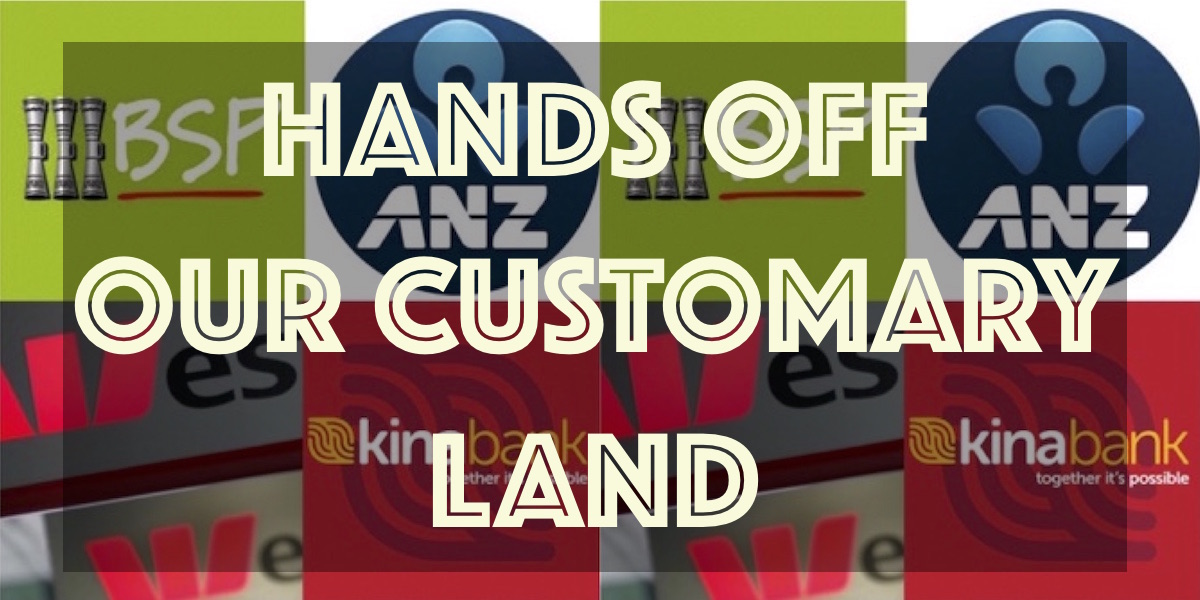
24th February 2020
Banks want to lend money to people and small business in Papua New Guinea and to take rights over customary land as security in case the loans do not get repaid.
This could lead to a huge transfer of customary land into private ownership and lead to families and whole communities being forced off their land and losing their livelihoods.
Banks are large corporations dedicated to making profits by lending money and charging interest.
For hundreds of years banks have been lending to businesses based on credible business plans and trusted customer relationships. They also use business assets like vehicles, machinery or buildings as collateral to mitigate risk where necessary.
The banks want to lend as much money as possible to as many people as they can and they view Papua New Guinea and it rapidly growing population as a massive untapped market.
But, before the Banks start lending money they say they need a guarantee they will get repaid and that customary land is the obvious safety net. This fits with the wider ideological goal of western economies to transform customary land into a commodity that can be easily bought and sold.
But customary land is much more important than just providing people with a place to live. Customary land drives an economy worth up to K40 billion a year, provides employment for 3 million rural farmers, sustains a rural population of over 7 million people and provides them with a social and economic safety net and their unique cultural identity.
Customary land can never be allowed to be used as security for loans as that would endanger the whole survival of landowning communities.
Banks should not be applying different standards in their PNG operations and should rely on the same principles they use in other countries to make business and personal loans – credible business plans, trusted customer relationships and other standard risk mitigation measures.
